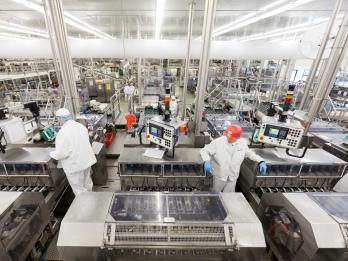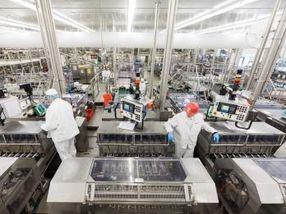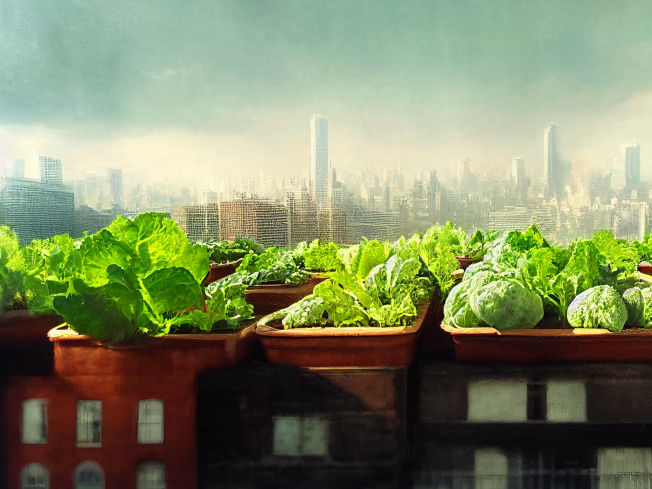Mars Wrigley ice cream factory converts production to 100 percent renewable energy
Mars Wrigley is switching the production of ice cream bars to 100 percent renewable Energy from the middle of the year. The factory in Steinbourg (Alsace) is thus the first Mars factory to obtain the energy required for electricity and heat generation entirely from renewable sources. The use of fossil fuels is being dispensed with.

Mars Wrigley ice cream bars available in Germany are manufactured in the Steinbourg factory using climate-neutral energy.
© Mars Wrigley

© Mars Wrigley


With this initiative alone, the confectionery manufacturer is reducing itsCO2 emissions by up to 600 tons per year. The Mars Wrigley ice cream bars available in Germany, for example the SNICKERS and MARS brands, are also produced in Steinbourg. The changeover is also visible on the multipacks of ice cream bars - because on some packages consumers will find the statement "Our factory uses renewable electricity to produce our ice cream bars". This initiative brings the family-owned company one step closer to its goal of achieving net zero greenhouse gas emissions across its value chain by 2050.
The switch to 100 percent renewable energy is the result of an employee initiative at the Steinbourg site, which is supported by the corporate group. At the heart of the measures is the replacement of existing gas boilers with new, electric boilers. These will be powered by certified electricity from renewable sources.
"We decide today what the world of tomorrow will look like. In view of the climate crisis, we see the elimination of fossil fuels in our factories as an important step toward a climate-neutral future. This sustainable approach in Steinbourg reflects our commitment to our planet," says Carsten Simon, General Manager at Mars Wrigley in Germany.
Sustainable in a Generation
Eliminating fossil fuels and switching to renewable energy is a key objective of Mars' Sustainable in a Generation plan, which aims to achieve complete climate neutrality by 2050. It includes all direct and indirect emissions along the entire value chain: from farmers to suppliers to consumers.
Note: This article has been translated using a computer system without human intervention. LUMITOS offers these automatic translations to present a wider range of current news. Since this article has been translated with automatic translation, it is possible that it contains errors in vocabulary, syntax or grammar. The original article in German can be found here.
Most read news
Topics
Organizations
Other news from the department business & finance

Get the food & beverage industry in your inbox
By submitting this form you agree that LUMITOS AG will send you the newsletter(s) selected above by email. Your data will not be passed on to third parties. Your data will be stored and processed in accordance with our data protection regulations. LUMITOS may contact you by email for the purpose of advertising or market and opinion surveys. You can revoke your consent at any time without giving reasons to LUMITOS AG, Ernst-Augustin-Str. 2, 12489 Berlin, Germany or by e-mail at revoke@lumitos.com with effect for the future. In addition, each email contains a link to unsubscribe from the corresponding newsletter.
Most read news
More news from our other portals
Last viewed contents
ZIEMANN HOLVRIEKA – a common company name symbolizing “Everything from a single source”

Nutrition education should be ‘on the menu’ of all healthcare professionals’ education - Research suggests nutrition education should be on the curriculum of all medical students as well as other healthcare professionals

CO2 ventilation breakthrough could turn city rooftops into bumper vegetable gardens - Scientists find that exploiting waste CO2 from building ventilation systems can help plants on rooftops grow better

Upfield Canada Inc. is expanding its operations with a new Canadian production facility - New Upfield Canada Facility for plant-based spreads and new vegan cheese production to open






























































